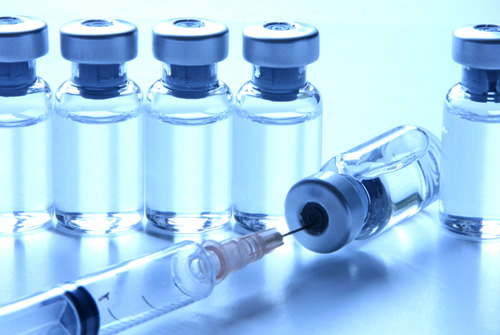
It is recommended that you receive injections twice a week during the initial period. Typically this requires about six months. As the dose is increased you may develop a small reaction at the injections site. This is similar to the mosquito bite like bump that appeared during skin testing. These reactions are typical and will be monitored by the nurse after each injection. The reactions help indicate the body’s response to the immunotherapy. You are required to wait in our office for 30 minutes after your injections(s) in order to evaluate this reaction.
After reaching your maximum dose, which typically requires six months (if reactions are minimal and the twice weekly visits are maintained), the following schedule can be expected:
Once a week for one month.
Every two weeks for two months.
Once a month.
Every three weeks for three months.
Immunotherapy will continue monthly until your symptoms are best controlled. The doctor will schedule immunotherapy checkups every 6-12 months so you can discuss your injection program and progress.
Allergy injections are administered at certain times throughout the week. A schedule of our hours for immunotherapy will be available a month in advance. An appointment will not be needed for your injections. There must be one day between each injection and you may not receive injections more than twice weekly. If your schedule does not permit twice weekly injections, weekly visits will allow the immunotherapy to advance.
Injections will not be given if you are ill with a fever. If you are short of breath or wheezing, you should contact our office for evaluation. Although it is common for some swelling and redness to appear at the injection site, the allergy nurse should be notified if you have any reaction after you leave the office, also please let us know immediately if you experience shortness of breath, wheezing, coughing, dizziness, skin rash, generalized itching or tightness in the chest.
Injections are administered only when a physician is in the office. This is for your protection. We would like to stress that should you take your antigen solutions elsewhere to receive your shots, it is important that a physician be in attendance. Under no circumstances, will we allow anyone to administer the injection at home.
Although we will be happy to see you as a patient for any problems related to your allergies or asthma, it is important that each patient have a primary care doctor for other medical problems.
